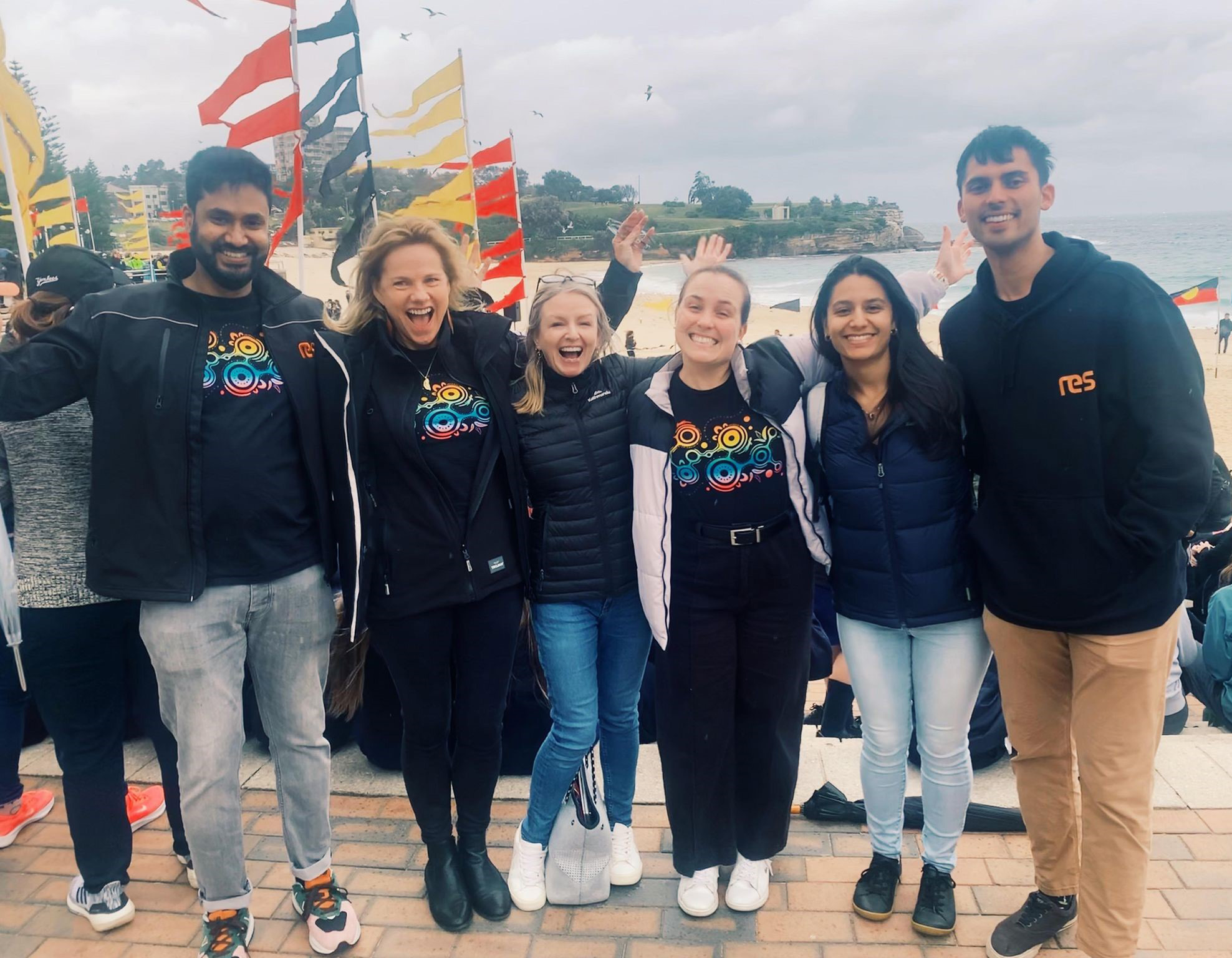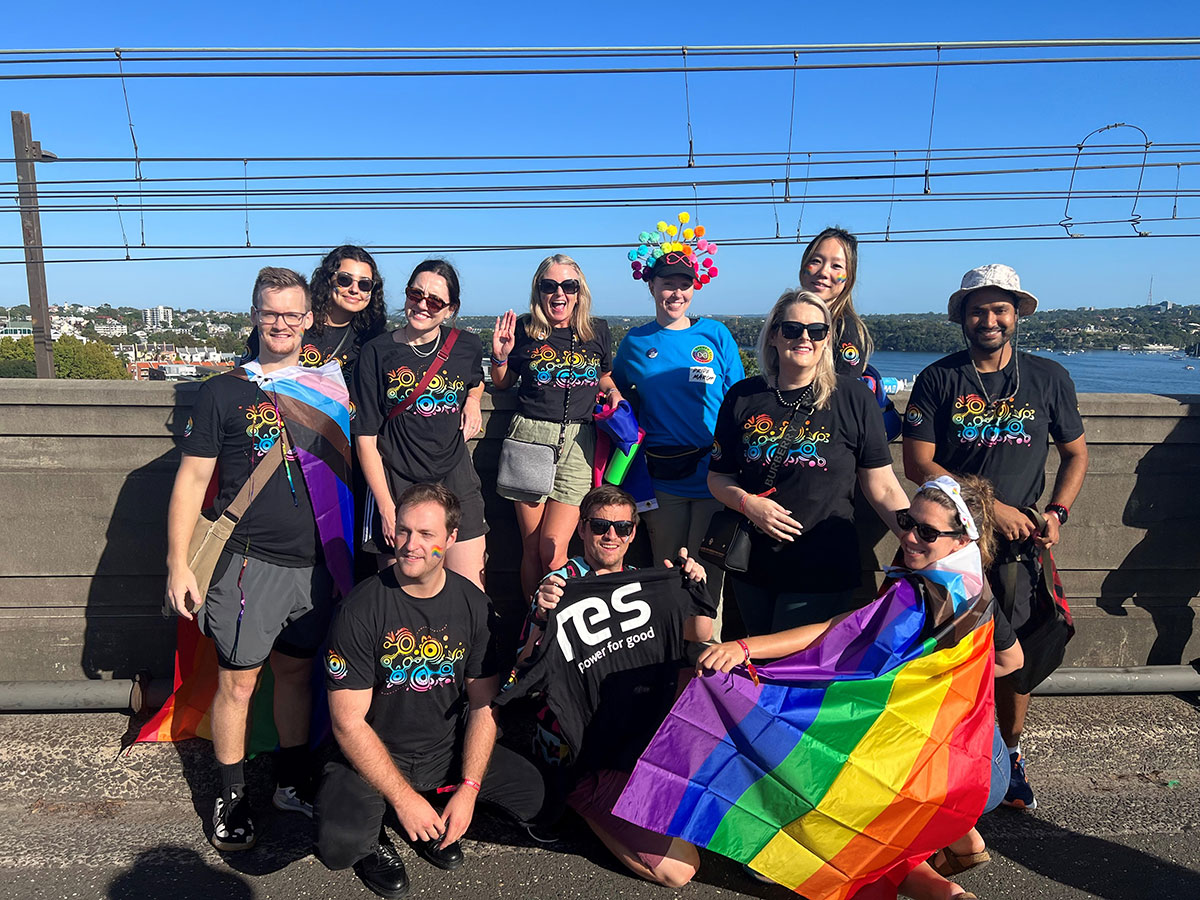Workplaces should reflect and respect the ideals and perspectives of the society they serve and the employees who constitute them, because that is the right thing to do, but also because research consistently shows that diverse and inclusive organisations are more likely to be effective, innovative and provide excellent customer service.
In 2021, the Clean Energy Council released Empowering Everyone, a piece of research into diversity in the Australian clean energy sector – the first survey of its kind. While the findings were generally positive, there are plenty of areas where improvement was needed, from greater representation of women – especially at the higher levels of management, in STEM roles, and in the trades – and greater inclusion of First Nations peoples and people with disabilities and other dimensions of diversity.
We spoke to Amanda White, Global Head of Diversity and Inclusion at RES Group (RES), about diversity in the clean energy industry, the barriers we need to remove, and the pathways into the industry we need to build.
Too many candidates are being overlooked due to systemic barriers and processes that are open to bias and discriminationAmanda White RES Group
Barriers to entry
“There is the business, legal and moral case for why diversity and inclusion (D&I) is important,” says White. “What drives me is the moral case first, which frames diversity as an end in itself. The business case is clear – diverse organisations perform better, so I’d like to see organisations focus on fairness.”
RES (Renewable Energy Systems), the world’s largest independent renewable energy company, has been working hard to ensure its operations support the industry in an inclusive way. By setting up five ‘Affinity Networks’ (focused on age, disability, gender, LGBTQ+, and cultural identities), White is hoping first and foremost to remove the barriers to employment in clean energy.
“According to a recent report by DCA (Diversity Council Australia), there are three million people looking for work in Australia, most of whom are from marginalised groups. Too many candidates are being overlooked due to systemic barriers and processes that are open to bias and discrimination,” says White.
“Employment policies and processes need to be designed with inclusion in mind, demonstrating to people that your organisation is welcoming and safe. Things like gender-neutral parental leave, LGBTQ+ allyship training, domestic family violence support, cultural holiday swap and gender affirmation policies help to signal safety as well as inclusion.”

RES is concentrating on improving its data collection across the talent lifecycle to better enable ‘equity design principles’.
“Equitable design means focusing on fair treatment rather than necessarily ‘equal’ treatment,” says White, “which implies that everybody is on a level playing field. We may not recognise that due to our own blind spots, but if we want diversity then we need to recognise that everyone is different and has different needs.
“A culture of psychological safety enables open discussions about your teams’ needs and organisations can allocate accommodations and/or resources as needed. Historically, accommodations were viewed as something that could impact an organisation financially when that’s far from the truth. It is often simple things such as changing the lighting above someone’s desk due to sensory issues, provision of an adapted keyboard or large screen, providing a private room for prayers, or sending a candidate interview questions in advance if they are linguistically diverse. Diverse and inclusive teams create a safe, open-minded space for people to collaborate and experiment, which enables innovation, the results of which we’ve seen at RES.”
Inclusion impacts wellbeing
Since Amanda began her role as Global Head of Diversity and Inclusion in 2022, she has worked on a wide range of activities to promote inclusion in the workplace, including launching a menopause support policy, publishing an inclusive language guide, supporting the submission of RES’ first RAP and provision of a prayer room in RES’s Australian premises. She has also collaborated with colleagues in other regions on placements for students from lower socioeconomic backgrounds, developed a Neurodiversity Recruitment Guide and is currently collaborating with Clean Energy Council members to develop Australia’s first Clean Energy Pride Network.

“Inclusion directly impacts wellbeing,” says White. “To enable people to bring their best selves to work we need to take time to listen to lived experiences to identify gaps where we can improve. Feedback has resulted in the development of our cultural holiday swap days, and the flexibility of our parental leave allowance has allowed people to take as much or as little time as they wish and use the remainder to return part-time, which has been popular with male colleagues.
“If we are to future-proof the industry, I would recommend that we flex our recruitment approach to widen the talent pool and eliminate bias. When writing a job advertisement or description, every extra line is an extra line of exclusion. Be wary of over inflation of qualifications required and simple words such as ‘desired’ or ‘preferred’ can deter diverse talent from applying for roles. In terms of career development, we should no longer be reviewing the applications from people who applied but give equal attention to those who could have but didn’t. Some people need encouragement and, finally, focus on fixing the system rather than the people. There is a lot of work going on in industry to work with schools, trades and universities, which I hope will start to have some positive impact on building talent pipelines.”
I’d like to see flexibility in job design. To unlock the key to diversity, one of the actions we can take is to work to remove outdated ideas of the ‘ideal candidate’Amanda White RES Group
Promoting clean energy pathways
In addition to demonstrating that organisations are genuinely inclusive, the industry must support and promote pathways into the workforce, so that everyone can see themselves working in clean energy, no matter who they are.
“We hear firsthand all the time that there is not enough exposure of the range and variety of roles in renewables,” says White. “It’s thanks to some very smart recruiters that RES has been able to attract talent with transferable skills, from industries that are not necessarily the ones you might think of.
“We need to engage with our schools and universities to make pathways into clean energy clearer to the next generation of diverse talent,” says White.
As part of strengthening RES’s relationship with the University of NSW, RES recently hosted students who are part of the University of New South Wales’s Co-NNECTIONS program, which supports students in developing confidence and familiarity with the professional world.
“I’d like to see flexibility in job design within the industry,” says White. “To unlock the key to diversity, one of the actions we can take is to work to remove outdated ideas of the ‘ideal candidate’ and if we had more part-time and job-sharing opportunities, we could perhaps see an increase in gender diversity. We could also see an increase in diversity if we offered non-graduates opportunities to study alongside work.”
Next steps
There are plenty of opportunities to do better. Clean energy is a burgeoning industry, and we need to ensure it is, and remains, an equitable, inclusive sector. There is more work to be done on diversity across the board, from LGBTQ+ and First Nations representation to profiling the industry and making pathways to entry clear and inclusive.
On the latter point, the Clean Energy Council is convening a regular working group – which Amanda sits on – for representatives of Australia’s renewable energy industry and the university sector, the aim of which is to cooperate further in preparing and connecting graduates with career opportunities in clean energy.
“To get more people into clean energy, we need to amplify the range of roles within renewables, partner with organisations to reach diverse talent, demonstrate safety and inclusion throughout our entire talent lifecycle processes, gain leadership support, and finally leverage data. Data is crucial to identify priorities and measure outcomes.
For more information on diversity in clean energy, read the Clean Energy Council's Empowering Everyone report.
For more on RES's efforts in the diversity space, click here.

If you or someone you know is interested in a career related to the clean economy, check out our upcoming free-to-attend jobs fair.